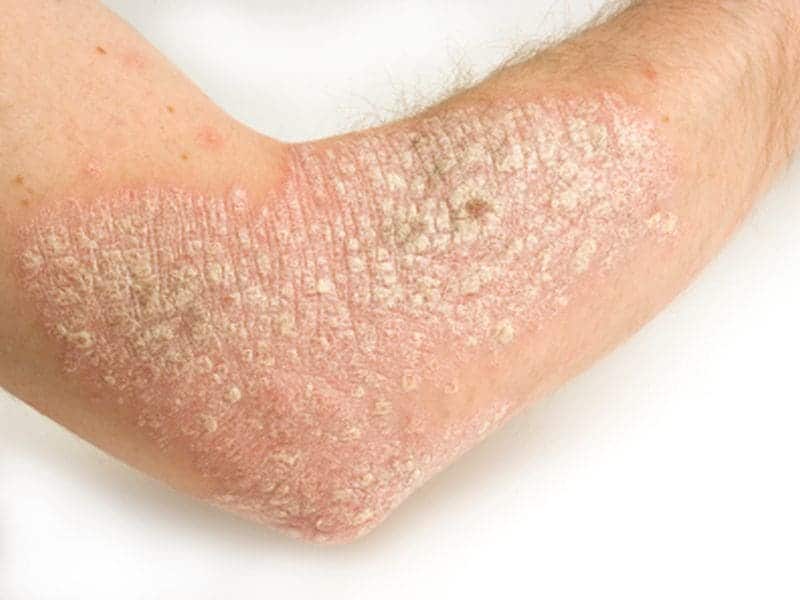MONDAY, May 13, 2019 (HealthDay News) — For patients with psoriasis treated with systemic medications, the risk for serious infection is reduced for new users of apremilast, etanercept, and ustekinumab versus methotrexate, according to a study published online May 10 in JAMA Dermatology.
Erica D. Dommasch, M.D., M.P.H., from the Beth Israel Deaconess Medical Center in Boston, and colleagues conducted an observational study to compare the risk for serious infection associated with biologic and nonbiologic systemic medications in patients with psoriasis. Data were included for 31,595 patients with psoriasis with prescription claims for acitretin, adalimumab, apremilast, etanercept, infliximab, methotrexate, or ustekinumab.
The researchers found that the pooled propensity score-matched analysis yielded a decreased rate of overall serious infection in apremilast, etanercept, and ustekinumab users compared with methotrexate users (hazard ratios, 0.50, 0.75, and 0.65, respectively). There was no difference in the rate of overall serious infection for acitretin, adalimumab, and infliximab users compared with methotrexate users. Users of acitretin had a significantly increased risk for cellulitis compared with methotrexate users in a subanalysis by type of serious infection (propensity score-adjusted hazard ratio, 1.76).
“We found significant differences in the risk of serious infection across different systemic treatments for psoriasis,” the authors write. “This information should be considered when prescribing therapies for individual patients, as well as future treatment algorithms.”
Two authors disclosed financial ties to the pharmaceutical industry.
Copyright © 2019 HealthDay. All rights reserved.



